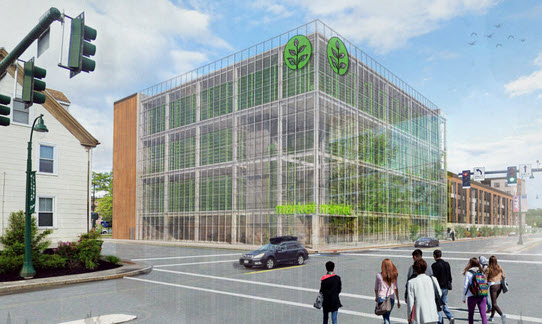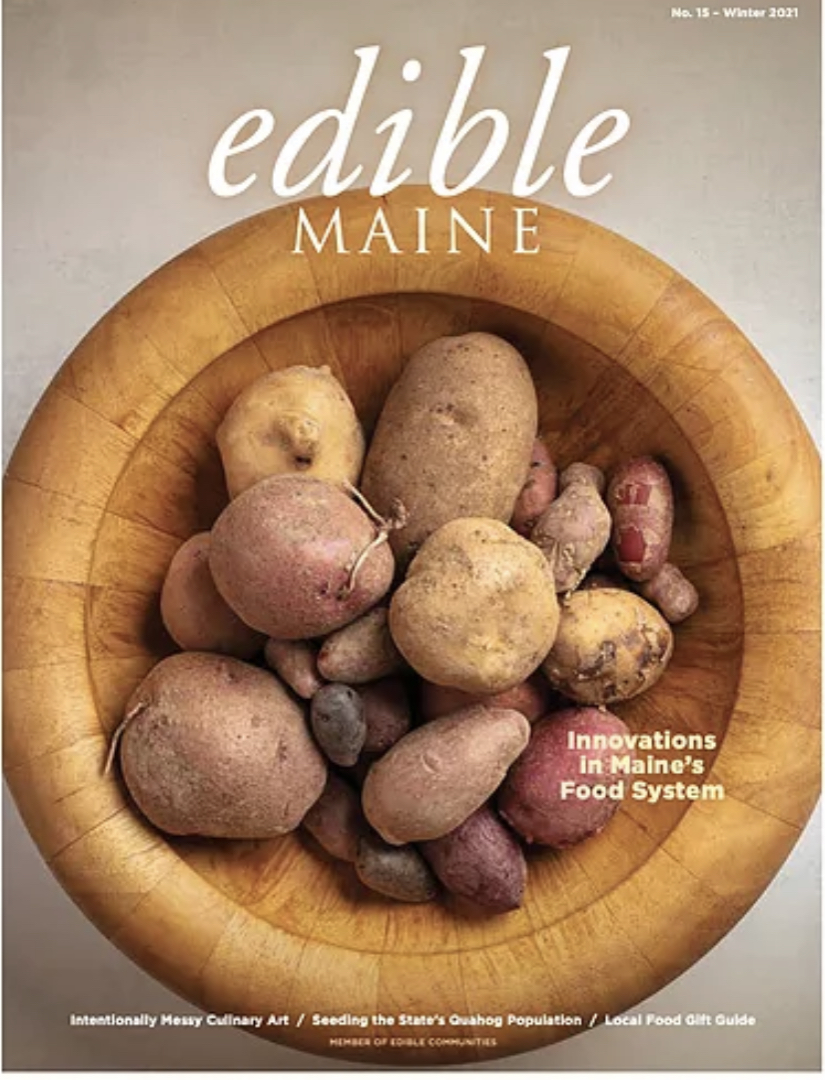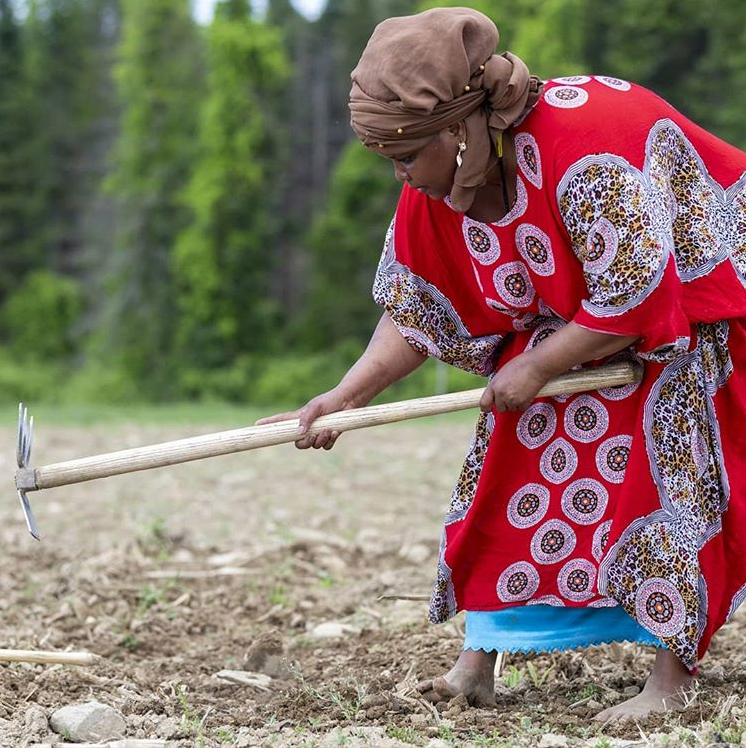
An urban farming company called Vertical Harvest (website, facebook, instagram, twitter) is planning to build their second hydroponic vertical greenhouse in downtown Westbrook. Co-founders Nona Yehia and Caroline Estay expect to start construction in 2021.
Vertical Harvest provides “consistent, meaningful employment” for people with intellectual and physical disabilities. Their focus is to “create partnerships to build cost effective, profitable hydroponic farms that will not only act as innovative urban models for growing fresh food, but will have a substantial social impact.”
The 70,000 square-foot Vertical Harvest Westbrook located on Mechanic Street will initially grow a variety of microgreens and lettuces. It’s estimated this vertical farm will produce a million pounds of produce per year. In addition to wholesale partnerships with hospitals, corporate cafeterias, schools, chefs, restaurants, caterers and more, the Westbrook location will also have a consumer marketplace and plans for a presence at farmer’s markets.
The company anticipates bringing 50 full-time equivalent jobs to Westbrook.
Vertical Harvest got their start in 2016 with the launch of their first vertical greenhouse in Jackson Hole, Wyoming.
Co-founder Nona Yehia stated, “We have felt a kinship with Maine for quite some time. At our beginning stages 10 years ago, Vertical Harvest Jackson engaged the same engineer as Backyard Farms in Madison, Maine. Wyoming and Maine have more in common than just a four-to-five month grow season and drastic seasonal climates – they have polar rural and urban areas, there is deep rooted respect for the environment, the farming and food communities are a source of pride, and there is a sense of responsibility to serve the job and food insecure population. With our second location for Vertical Harvest, we feel honored to become a part of this special state and Westbrook community.”
A documentary about Vertical Harvest called Hearts of Glass was recently released. Here’s an excerpt from the film.
 September has arrived and with it the leading edge of the Maine apple season. Take a look at the updated Maine Heirloom Apple Guide for detailed information on where and when to find dozens of heirloom apple varieties grown at sixteen outstanding Maine orchards.
September has arrived and with it the leading edge of the Maine apple season. Take a look at the updated Maine Heirloom Apple Guide for detailed information on where and when to find dozens of heirloom apple varieties grown at sixteen outstanding Maine orchards.

